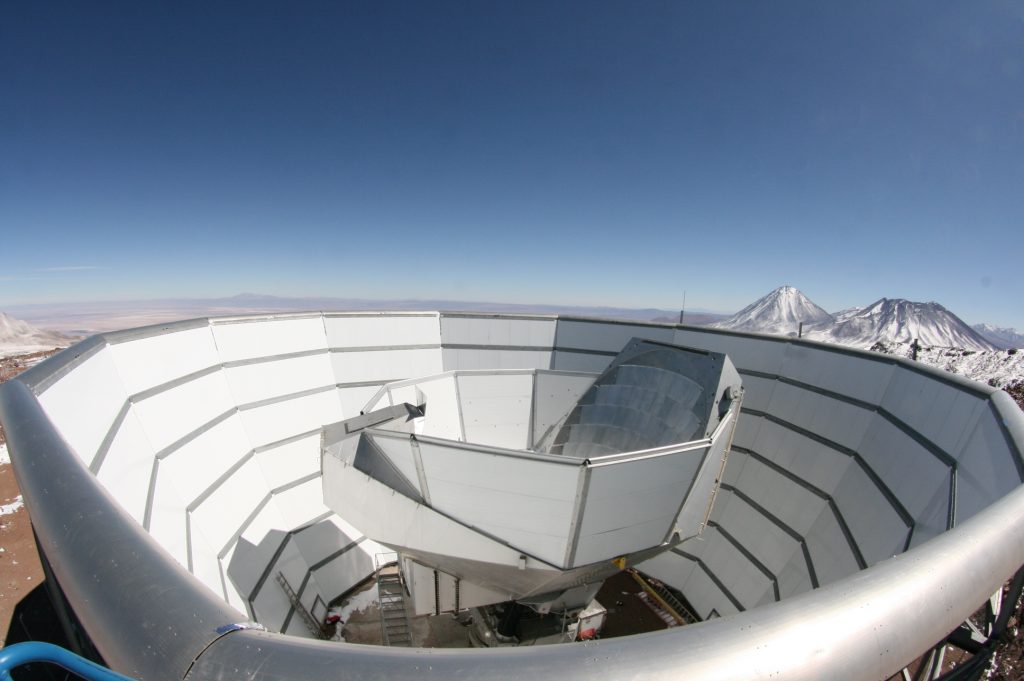A second type of dark energy may explain why the universe is expanding faster than expected. Cosmologists have now noticed hints of this extra dark energy in measurements of the oldest light in the universe.
The universe is not only expanding, it is expanding faster and faster. We’ve known this since 1998. And because gravity has to try to hold everything together, there must also be something that counteracts this effect and induces stretching. What exactly is this thing, cosmologists do not know, but they call it dark energy.
It turns out that this accelerating expansion is difficult to measure correctly. There are now two ways to use the so-called Hoblikonstant – which shows how fast the universe is growing. First of all, you can take a look at the current universe and our immediate environment. To do this, cosmologists measure how far some stars are from us and how quickly they are moving away from us. Additionally, dilation can be measured by looking back in time, at cosmic microwave background. This is the afterglow of the Big Bang and the oldest light in the universe.
Early dark energy
There are two measurement methods Different values of the Hubble constant. “It’s possible that something was going on in the early universe that made the value appear less there,” says the cosmologist. Rien van de Weijgaert from the University of Groningen, which was not involved in the new research. cosmology Mark Kamionkowski From Johns Hopkins University in the US in 2019, he suggested an additional component that may have existed in the early universe: early dark energy (Early dark energy).
Early dark energy would behave as a type of fluid that existed 380,000 years after the Big Bang, but then quickly disappeared. Like today’s dark energy, it pushed the universe away. It wasn’t powerful enough to speed up expansion as we can see now, but it cooled the hot substance soup of the early universe more quickly.
That early dark energy may have influenced the cosmic microwave background radiation. This means that we have to interpret the background radiation measurements differently. If cosmologists analyzed background radiation using early dark energy models, for example, the universe would not be 13.8 billion years old, but 12.4 billion years old. And the expansion would be about 5 percent faster than the universe without early dark energy. This would agree well with the measurements of expansion in our immediate vicinity.
“I find the idea of early dark energy very interesting,” says Van de Weijgaert. This will explain why two different measurement methods measure different values of the Hubble constant.
Aurora measurements
Now two independent To investigate – Online people within a few days of each other Back – in measurements Atacama Telescope for Cosmology (ACT) Chile may have seen the first signs of early dark energy. ACT measures the cosmic microwave background radiation.
“It turns out that the pattern we see with ACT in the cosmic microwave background is better explained if we assume the presence of early dark energy,” the astrophysicist wrote in the mail. Vivian Bolin From the University of Montpellier in France, which you participate in one of the studies. That was a big surprise. “At first we thought we had made a mistake.”
“The research is intriguing and actually appears to be correct,” says Van de Weijgaert. But there are still many obstacles to analyzes of the cosmic microwave background radiation. Whether or not you actually see signs of early dark energy depends a lot on the exact information you use from the measurements.
The researchers themselves also emphasize the uncertainty in their measurements. So it is not yet certain that this additional form of dark energy exists. Therefore, they are now working to collect and analyze other background radiation measurements. Pauline: “I believe that future ACT measurements and other background radiation detectors will provide critical evidence for (or against) the early dark energy model.

“Coffee buff. Twitter fanatic. Tv practitioner. Social media advocate. Pop culture ninja.”











More Stories
Which can cause an increase in nitrogen.
The Central State Real Estate Agency has no additional space to accommodate Ukrainians.
The oystercatcher, the “unlucky national bird,” is increasingly breeding on rooftops.